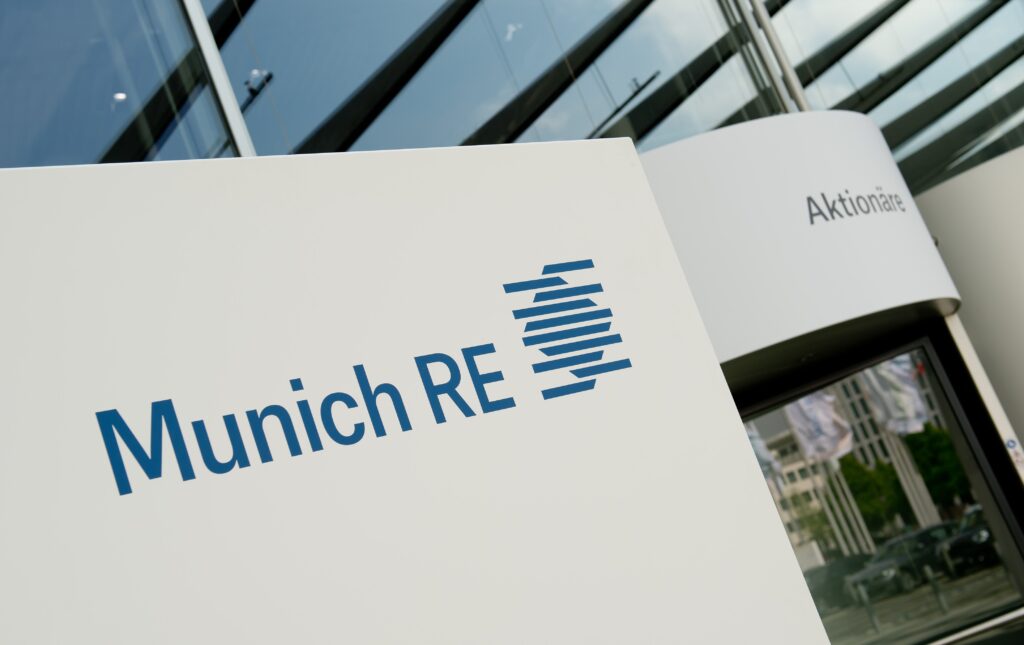The company acknowledged the complex uncertainties arising from factors such as inflation, geopolitical risks, deglobalisation, climate change, and cyber risks. In these challenging times, Munich Re aims to stand as a reliable financial partner for its clients, offering an elevated level of risk expertise and value-added solutions.
In a public statement, Blunck said: ” Uncertainties caused by inflation, potential impacts from geopolitical risks, deglobalisation and dynamic risks such as climate change and cyber risks are some examples as to why the market environment remains complex. Particularly in difficult times such as these, we are a financially strong partner who our clients can always count on to provide a high level of risk expertise and solutions that add value. With the right rates and conditions, we’re ready to further increase our capacity.”
Looking ahead to the period spanning from 2023 to 2025, Munich Re anticipates a modest resurgence in the global reinsurance market, albeit slightly below the levels observed from 2020 to 2022. The most significant growth is projected to unfold in the Asia-Pacific and Latin American regions.
Reinsurance capital, a pivotal indicator of available reinsurance capacity, is forecasted to climb to US$461 billion in 2023, rebounding from the previous year’s decline. The market for alternative risk transfer remains relatively stable, with approximately US$100 billion invested in capital, notably featuring a shift towards catastrophe bonds.
The company underscores the critical importance of precise inflation estimations, given the recent surge in inflation rates. Munich Re anticipates that consumer price inflation in industrialised nations will likely persist above central banks’ targets of approximately 2% in the years ahead.
Furthermore, Munich Re emphasises the evolving landscape of risks, particularly within the realm of natural hazards, partly attributable to climate change.
In response to these dynamic market conditions, Munich Re is set to increase its investments across various domains, including the expansion of risk modeling for natural hazards, innovative climate-friendly energy technology coverage, and harnessing the potential of data and technology, including artificial intelligence.
“Given the dynamic development of the market environment and how the risk landscape is evolving, we will need to increase our investments to ensure and expand (re)insurability,” continued Blunck.
Areas of enhanced investment include:
- Expanding risk modelling and high-definition models to better reflect increasing risks from natural hazards.
- Stepping up resources and expertise in innovative and complex covers for all types of climate-friendly energy technology. Key growth areas here are classic construction and operational covers for renewable energy and grids.
- Greater utilisation of data and technology is a future trend for insurers and reinsurers alike. In this field, Munich Re is investing in expertise in the application of artificial intelligence (generative AI).
Additionally, Stefan Golling, the Board of Management member responsible for Global Clients and North America, provides four examples that demonstrate how important risk and underwriting expertise is for Munich Re, by listing four critical areas that must be fully addressed. They are:
- Natural catastrophes: Natural catastrophes are one of Munich Re’s largest loss scenarios. A deep understanding of the risk landscape and how it is changing – for example, rising exposure values and the effects of climate change – is paramount to offering extensive underwriting capacity. Despite very high market losses, Munich Re’s loss ratio has been exactly on target over the past five years – writing natural catastrophe business has thus added value for Munich Re overall.
- Social inflation in the US: In the US in particular, the amount of damages awarded in court has risen significantly. According to data from consultancy firm Marathon Strategies, the sum of so-called “corporate nuclear verdicts” with jury awards above US$ 10m was around US$ 18.3bn in 2022. After a considerable decline in 2020 and 2021, it now stands at more than triple the 2015 figure. This poses a huge challenge for long-tail liability covers. Limit management, proactive loss management and investment in data and analytical capabilities to identify loss trends at an early stage will help to overcome this challenge.
- Political risks have risen sharply in recent years. Social imbalances, populist and nationalist tendencies, and economic disruption caused by the COVID-19 pandemic have led to a significant rise in unrest in many parts of the world. In industrialised countries especially, the resultant losses are often covered by property insurers. Transparent policy wording, appropriate sublimits and clearly defined loss events are the key to such local events remaining insurable – in contrast to uninsurable accumulations from war, warlike acts or nuclear terrorist attacks.
- Cyber: Economic losses from cyber attacks are estimated to triple to US$ 24tn by 2027 compared to the 2022 baseline. For companies, having the option to insure themselves against cyber risks and increase their protection is becoming increasingly relevant. The cyber insurance market is expected to grow two-and-a-half fold by 2027, by which time premiums are expected to reach around US$ 33bn. Munich Re is the leading provider of cyber (re)insurance and is firmly committed to facilitating a sustainable and profitable cyber insurance market. Uninsurable risks, such as attacks on critical infrastructure and cyber warfare, will continue to be explicitly excluded from the coverage Munich Re provides.
“Expert and highly disciplined underwriting is the backbone of Munich Re’s identity. We routinely adapt our rates and conditions to the changing environment, exclude systemic risks and develop solutions for new challenges. This approach ensures that we can maintain – and wherever possible even strengthen – our position as a risk carrier while sustaining profitable growth. Clients can count on us, especially in uncertain times,” Golling added.
Source: Munich Re








